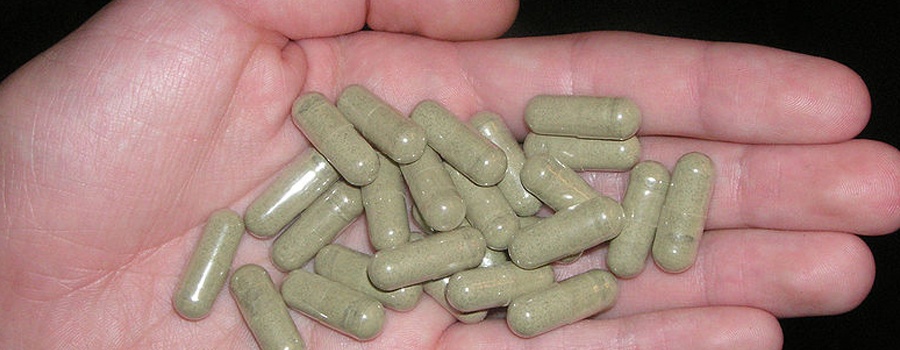The U.S. Food and Drug Administration has officially classified the plant kratom, originally seen as an opioid alternative, as an opioid itself, stating that compounds in kratom act like prescription-strength opioids.
Found in Malaysia, the leaves of the kratom plant are traditionally crushed and made into a tea to treat pain as well as heroin or morphine dependence and possibly reduce withdrawal cravings. According to the American Kratom Association, there are 3 million to 5 million kratom users in the U.S. The supplement can be found in head shops and gas stations sold as powders, pills, capsules and energy drinks.
FDA scientists analyzed the chemical structures of the 25 most common compounds in kratom and concluded that all of the compounds share structural characteristics with controlled opioid compounds, such as morphine derivatives. They also found that compounds in kratom bind strongly to mu-opioid receptors, comparable to opioid drugs.
The scientific data and event reports have “clearly revealed” compounds in kratom make it “not just a plant — it’s an opioid,” said FDA Commissioner Scott Gottlieb, M.D., “and it’s an opioid that’s associated with novel risks because of the variability in how it’s being formulated, sold, and used recreationally and by those who are seeking to self-medicate for pain or who use kratom to treat opioid withdrawal symptoms.”
The FDA announced the voluntary destruction and recall of all kratom-based products manufactured nationwide under the brand names Botany Bay, Enhance Your Life and Divinity by Divinity Products Distribution. The FDA encourages all companies currently involved in the sale of products containing kratom intended for human consumption to take their products off the market and submit any necessary evidence to the FDA.
“The extensive scientific data we’ve evaluated about kratom provides conclusive evidence that compounds contained in kratom are opioids and are expected to have similar addictive effects as well as risks of abuse, overdose and, in some cases, death,” said Dr. Gottlieb. “To protect the public health, we’ll continue to affirm the risks associated with kratom, warn consumers against its use and take aggressive enforcement action against kratom-containing products.”
The FDA recommends consumers not use any kratom products and dispose of any products currently in their possession. “At this time, there’s no evidence to indicate that kratom is safe or effective for any medical use,” said Dr. Gottlieb.
The FDA has received 44 reports of deaths associated with the use of kratom. Additionally, the FDA and the U.S. Centers for Disease Control and Prevention are carefully monitoring an active nationwide outbreak across 20 states of a rare type of salmonella associated with kratom products.
